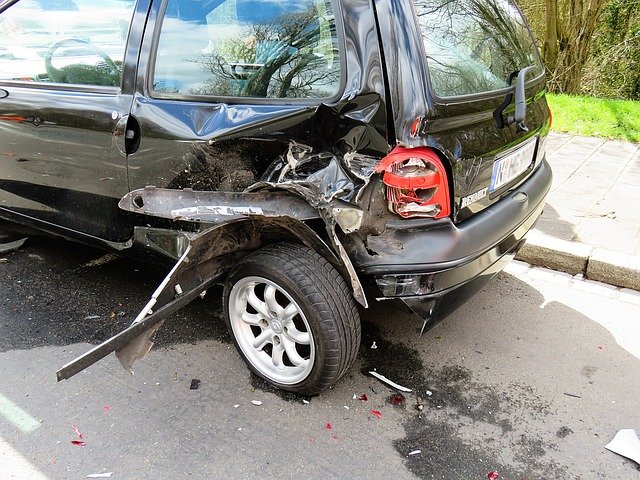Does Standard Auto Insurance Cover Single-Car Accidents?
Image by Gerhard G. from Pixabay
Standard auto insurance is the least amount of insurance that you can carry, and no, it does not cover single-car accidents. When you buy the bare minimum of coverage you can get away with, if you get into a single-car wreck, you’ll be on your own.
Each state requires that you have bodily injury liability and property damage liability insurance coverage in the amounts that it has set. Bodily injury liability insurance pays medical expenses for the people hurt in an accident that you have caused. Property damage liability pays to repair or replace the property that was damaged in a collision that you caused.
This coverage does not pay your medical bills or your property repair bills. You will need to purchase additional coverage if you want your insurance to cover your own damages.
The purpose of liability insurance is so that you can take financial responsibility for the injuries and the damages that occur if you are determined to be the cause of a collision. The state does not require that you purchase insurance for your own medical bills and property repair bills.
Optional Coverage
After a collision, the insurance companies will assign blame, and the person assigned the blame will be the person responsible for paying all of the bills. Your liability insurance coverage will pay the third-party bills, but you will be the only one responsible for paying your own medical and property repair bills.
Insurance companies also offer optional insurance coverage that the state does not require that you purchase, but it is a good idea to have it. In states that require personal injury protection insurance coverage (PIP), carrying the maximum amount of compensation that you can afford can make your life a lot easier after a wreck.
Comprehensive Coverage
Comprehensive coverage is the type of auto insurance coverage that will cover the damages if you are involved in a single-car accident. Comprehensive insurance covers your damages if you suffered losses in something other than a collision with another vehicle. These losses include the following:
- A collision with an animal
- Damage from a riot
- Damage from inclement weather
- Damage from fire or an explosion
- Damage from vandalism
- Car theft
Is Comprehensive Insurance Coverage a Good Idea?
If you are determined to be the cause of a collision, your standard insurance policy would only cover third-party bills. That would mean that you wouldn’t have any help paying your medical bills and property repair bills.
The average cost of a car accident is more than the minimum coverage in many states. If you couldn’t afford to pay to have your vehicle repaired or replaced after a collision that you caused, it would be a good idea to protect yourself with comprehensive coverage.
Comprehensive coverage is not always worth the price. For example, if the amount you would have to pay for this coverage would be more than 10% of your car’s value, the best thing to do is drop it. In the event that your vehicle is totaled, you would only receive the amount that the vehicle is worth on that day, and this wouldn’t be enough to make this coverage worthwhile.
If you aren’t driving several miles back and forth to work, you may not need to purchase collision coverage. If you do travel several miles every day, your risk of being in a collision goes up, so collision coverage would be a good purchase for you.
Your risks increase if you are living in an area where the crime rate is very high. The possibility that your vehicle could be damaged by vandalism may be very real for you, so collision coverage is something for you to consider. Also, your area may be prone to experiencing natural disasters, and these can damage your vehicle as well.
If you have been injured in a car collision, you may need legal representation to help you with your insurance company. Follow this link to call a personal injury lawyer for a free case review today.

